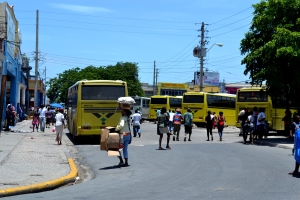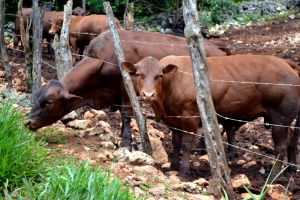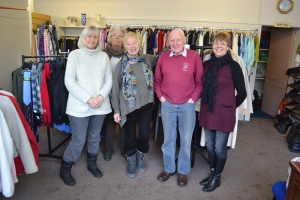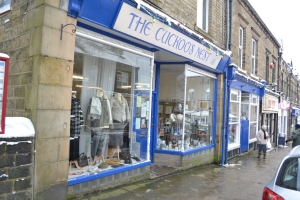By Stuart Taylor
What is your image of life in Jamaica, for the average Jamaican? Some people think the island is rife with deception, trickery, stealing and corruption. “Doing a ting”, as people say.
Like many people, I have been amused by some of the stories of “doing a ting”. There’s the perhaps mythical story of the ex-London bus driver. After thirty years of driving the streets of London, he returns to Jamaica. He has a few car driving lessons and studies the highway code. Test one – fail! Test two – fail! Test three – fail! How can this be? But his friend explains, “yu mus do a ting”. Once his paperwork for the examiner is accompanied by £100, he passes – no problem!
Then there is the policeman who was so helpful by accepting the fine for a minor traffic infringement to save the driver from having to spend all the next day in court. Yet he asks the motorist to pull in to the side street as there’ll be fewer persons with cell phone cameras to record this fine transaction!
Okay, we could all go on and on with examples. “Doing a ting” happens in many countries in one way or another. The GP in Romania’s health system will often anticipate a tip in addition to the standard payment – and that’s in a part of the EU!
We can easily be blinded by all the talk of “doing a ting” in a negative way. Many of my personal experiences suggest the opposite. A primary school in Trelawny set up an early start breakfast club that is helping children that face particular difficulties to get up to scratch. Teachers are choosing to start work earlier, for no extra pay. Parents are helping with breakfast preparation. Others are helping to pay for the food. Pupils are keen – some even arriving before the teachers.
After viewing a house in Runaway Bay, on the north coast, the man showing me round walked to my car and spotted wires hanging below the front bumper. Within a second, the bonnet was up and the problem sorted.
Then there are the friends or neighbours – tax or legal experts – who will sort your technical difficulty with no expectation of financial gain to themselves. Just like the stranger standing in the road who gave me a bag of mango one day and a sack of yam the next.
Surely this cannot be the Jamaica that we so often hear about? Well, if you live there for long enough you can come across even better examples. There’s the recent case of a labourer on my building site. For weeks he impressed me as a hard-working 23-year-old. One day I was anxiously re-tracing my steps, searching, searching, searching. A few site workers had encouraged “Cowman” to keep the lost bag of US dollars. But as I reached the end of my first circuit, Cowman asked whether I had lost the little black bag. Not only was he fair and honest with me, he also wanted to be fair to his co-workers – whom he believed stood to lose two weeks’ wages.
In a similar vein, I visited a house in Kensington, on the east coast. A colleague dropped her phone in long grass, as we struggled across rough terrain. A young lady answered the missing phone and explained how we could find her. She happily returned a decent UK phone that carried plenty of international credit.
Such real-life stories of individuals “doing a ting” should be flashed around Jamaica – and around the world. Jamaica really is made up of lots of honest people – however the media may choose to exaggerate.
And we must not forget the Diaspora – Jamaicans working overseas who send large amounts of hard-earned pay back to family and friends. A recent report calculated that almost a tenth of Jamaica’s annual income (GDP) comes from individuals living in the USA. Adding in remittances from Canada and Britain means that perhaps a sixth or a seventh of Jamaica’s economy stems from the “gifting” of Jamaicans living abroad.
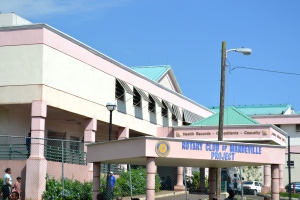
The Rotary club is a hospital where the local’s people volunteer their time to help people in the community.
In addition, there are the many persons who contribute each year to Labour Day activities – or through more frequent assistance to individuals and their community. And there remain a good few examples of credit unions and “partners” pooling financial resources to help individuals at certain times. As the Jamaica Co-Operative Credit Union League says, the Credit Union Movement “continues to have a significant impact on Jamaican society, promoting the ideas of self-help and community co-operation”.
A year after Jamaica’s 50th independence anniversary, we see many, many examples of honesty, endeavour and good spirit on the island – from individuals to millions at home and abroad. Whatever the cynics may say, we repeatedly see people, day-in, day-out, year-in, year-out living by the spirit of Jamaica’s wonderful National Pledge:
“Before God and all mankind, I pledge the love and loyalty of my heart, the wisdom and courage of my mind, the strength and vigour of my body in the service of my fellow citizens; I promise to stand up for Justice, Brotherhood and Peace, to work diligently and creatively, to think generously and honestly, so that Jamaica may, under God, increase in beauty, fellowship and prosperity, and play her part in advancing the welfare of the whole human race.”
Few countries across the world can rival such a splendid pledge. Perhaps Singapore gets nearest.
So, let’s celebrate Cowman and his many sisters and brothers who strive to build the better Jamaica that Jamaicans long to see – “whatever dem may sey ‘bout doing a ting”.
If you would like to find out more about Stuart experiences contact stuart@bespokehomesjamaica.com
